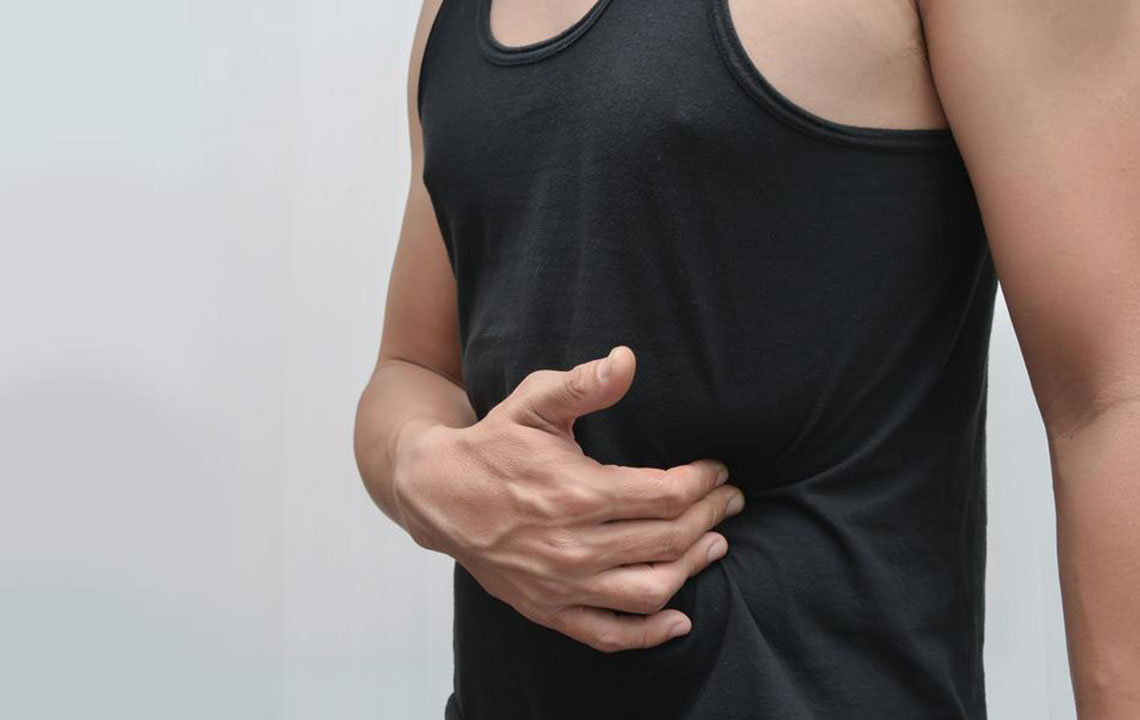What You Need to Know about Gallbladder Stones
Gallbladder pain symptoms trouble approximately 10% to 15% of the American population, and over $6.8 billion is spent for gallbladder treatment annually. Fortunately, the fatal cases of gallbladder problems have decreased from over 5000 in 1950 at a rate greater than approximately 50% in 2017. Having said that, with an estimate of 1.8 million check-ups each year, gallbladder pain symptoms seem to be the leading cause of hospital admissions with over 750,000 cholecystectomy operations taking place annually.

Gallstones
Formation of gallstones in the gallbladder gives rise to gallbladder pain symptoms, which one may experience. It is the size and composition of these gallstones, which describe whether there is a necessity of surgery or not. Most of the population carry gallstones with them from the age of 20, but might not require surgery. The common conditions of the gallbladder, i.e., gallstones, cholecystitis, gallbladder cancer, or gallstone pancreatitis, all originate from the formation of gallstones in the gallbladder.
Digestive system
The anatomy of the entire digestive system is a complex paradigm with the gallbladder being a small part of it. The liver secretes bile juice (for decomposition of fats) into the gallbladder for the digestion of food in the intestines. After completing a proper meal, the gallbladder contracts and squeezes out the bile through the cystic duct into the common bile duct. The bile is then released from the common bile duct to the duodenum (the entry part of the small intestine), where the bile juice breaks down the fats. It is the blockage in these ducts, which does not allow the bile to pass into the small intestine, and hence, common gallbladder pain symptoms emerge.
Formation of gallstones
Cholesterol is one of the main components of the bile juice along with water, bilirubin, proteins, etc. When the optimum proportion of all these components are not followed, the formation of gallstones takes place. When the amount of cholesterol increases in the secreted bile juice, the bile juice starts to crystallize. These crystals are gallstones. It is the size and number of these gallstones that determine whether the person will be troubled with gallbladder pain symptoms or not. The size of a stone ranges from a grain of sand to a golf ball. There two types of gallstones—cholesterol gallstones (yellow-green in color) and pigment gallstones (black-brown). Cholesterol gallstones are more common between the two.
Causes of gallstone formation
The common reasons which lead to the formation of gallstones are as follows:
– There is a high concentration of bile along with the other components of bile like water, proteins, bilirubin, copper, etc. This is called supersaturated cholesterol.
– Improper contractions of the gallbladder allow the gallstone crystals to remain in the gallbladder long enough to grow in size.
– Medicines for birth control measure or hormonal replacement raise the level of cholesterol in the bile juice and also bring improper contractions in the gallbladder.
– Medicines taken to lower the cholesterol level in blood might raise the cholesterol level in the bile juice, which is then secreted by the liver.
– Rapid weight loss is another cause because, during the period of weight loss, cholesterol is taken out from the fats and deposited in the bile juice in the gallbladder. This leads to crystallization of gallstones and damages the gallbladder movement.
Latest studies conclude that gallbladder pain symptoms are more likely to occur in females than males between the age of 20 to 60 years. One reason behind this is the extra secretion of estrogen among females during their pregnancy, which raises the cholesterol level in the secreted bile juice and damages the gallbladder movement. The rising level of cholesterol in the bile juice leads to the formation of crystals in the gallbladder. The reduced contraction of the gallbladder allows the crystals to stay in the gallbladder for long periods until they turn into gallstones and block the ducts to the small intestine. It is also found that the chances of facing gallbladder pains have a positive relationship with the age of the female.
Pain and inflammation in the lower abdomen are the most common of all the gallbladder pain symptoms. However, that might be a symbol of any gallbladder disease—gallstones, cholecystitis, gallbladder cancer, or gallstone pancreatitis. With the over-consumption of different unhealthy or junk food items, men and women are prone to gallbladder infections from their early twenties. Fortunately, there are many tests for gallbladder infections such as abdominal ultrasound, cholescintigraphy, ERCP, MRCP, etc., which help to catch gallbladder infections at an early stage and carry on the necessary treatment.